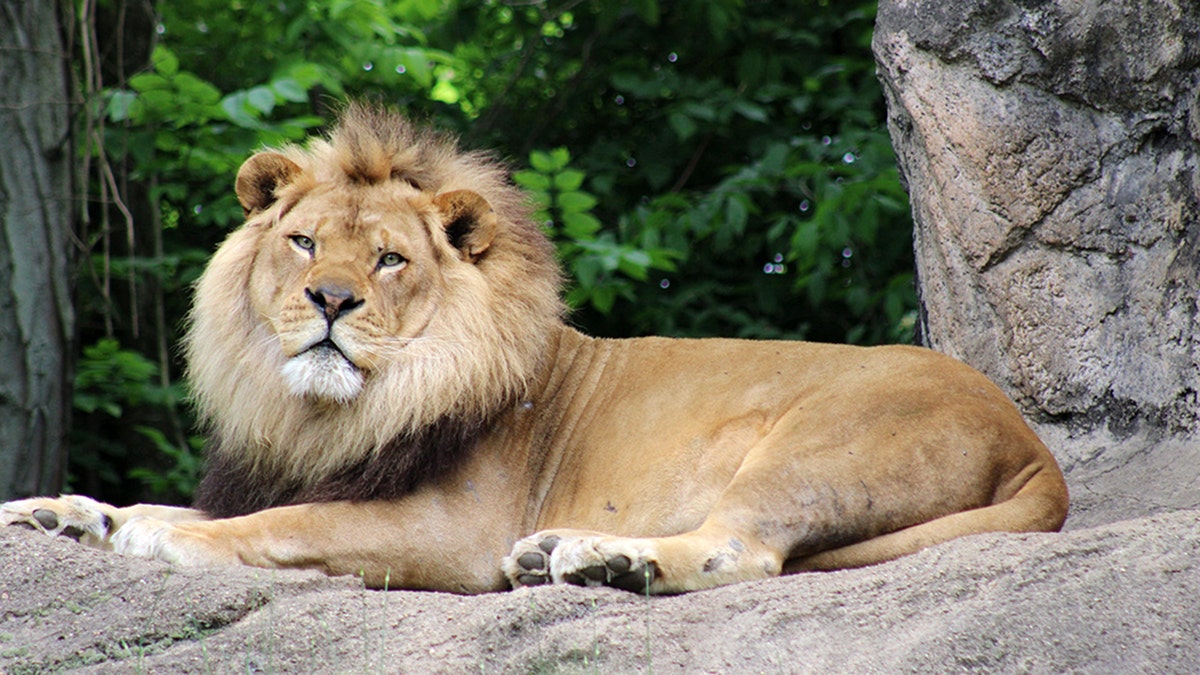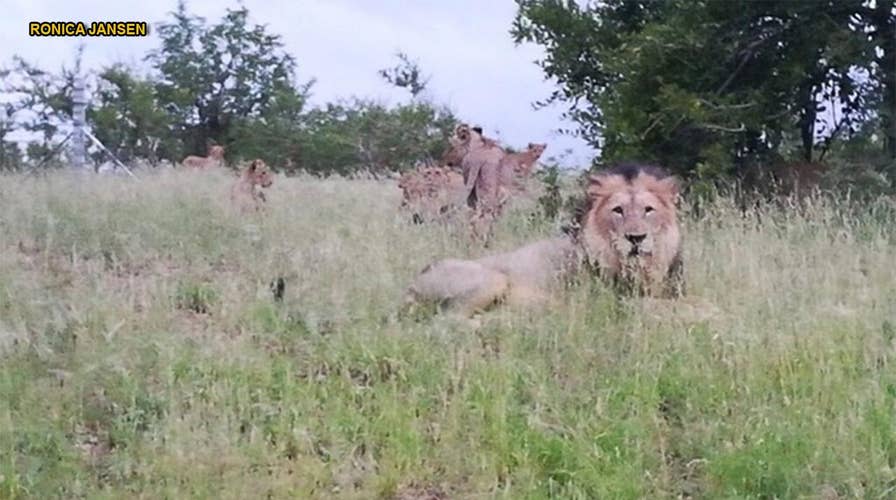South African authorities allow dozens of lions to roam free in outskirts of town
Since elephants trampled down surrounding fences, South African officials have opted to allow wild animals including rhinos, buffalo and a pride of nearly 50 lions to roam free. While many local residents worry for their safety, others understand the decision permitting the creatures to exist in their natural habitat.
The Pittsburgh Zoo and PPG Aquarium this week announced the death of a 10-year-old African lion named Razi.
In a saddening statement posted to its website, zoo officials said the feline suffered “a grand mal seizure on Sunday, fell in his exhibit, and fractured his jaw.” The lion’s seizure was likely caused by idiopathic epilepsy, from which the lion suffered for nearly seven years, according to the zoo.
MOUNTAIN LION SPOTTED PROWLING CALIFORNIA NEIGHBORHOOD PROMPTS WARNING
“Both veterinary and keeper staff determined that it was not in Razi’s best interest to attempt the difficult surgery needed, as aftercare would be extremely difficult in a 500 lb carnivore, in addition to maintaining a good quality of life given his increased seizure rate,” the zoo said in the statement, which noted idiopathic epilepsy is a “very rare condition in lions.”

Razi was a 10-year-old African lion. (Pittsburgh Zoo & PPG Aquarium)
Aside from the condition, the lion — which was given anti-seizure medications that are known to sometimes cause changes in the liver — was otherwise healthy. He was first diagnosed with idiopathic epilepsy in 2013 after suffering a seizure, roughly a year after Razi and his brother Ajani arrived at the Pittsburgh Zoo. Zoo officials said the big cats were “inseparable” and noted zookeepers are “keeping a close eye on Ajani during this transition time.”
“It is a sad day for all of us."
“It is a sad day for all of us,” Dr. Barbara Baker, the president and CEO of the Pittsburgh Zoo, said in the statement. “Our animals are like members of our family and losing a family member is tough. Razi was a magnificent animal, and will also be missed by our visitors who developed a bond with him and his brother Ajani.”
BOBCAT, RACCOON BRIEFLY ESCAPE NEW MEXICO ZOO AFTER VANDALS CUT OPEN ENCLOSURES, POLICE SAY
Dr. Ginger Sturgeon, the director of Animal Health at the zoo, called Razi “an amazing cat” in the statement.
“He allowed us to get voluntary blood samples from his tail every couple of months to check his medication serum levels and his liver function,” he continued. “It’s so hard for all of us at the zoo to lose an animal we have cared so deeply for but we try to remember all of the good memories and the positive impact that he had on our zoo visitors.”

